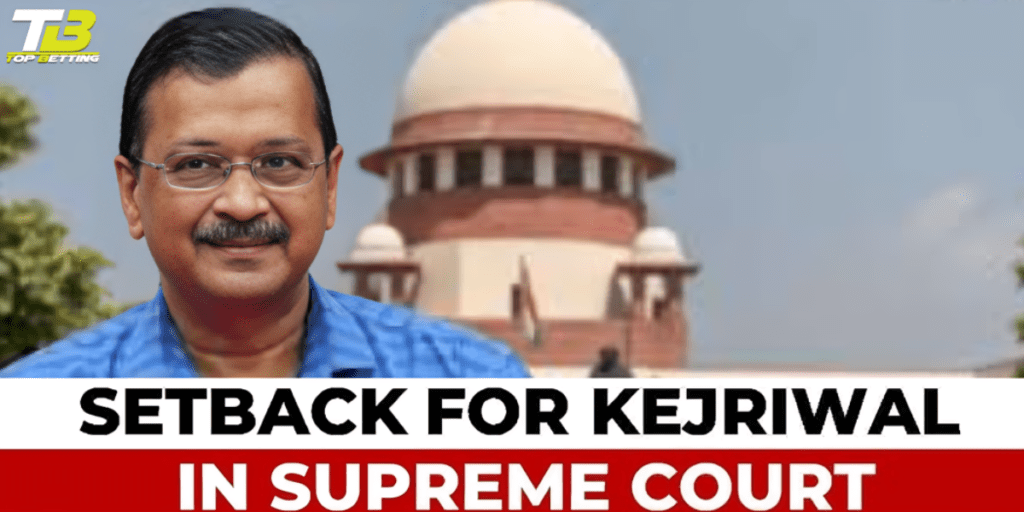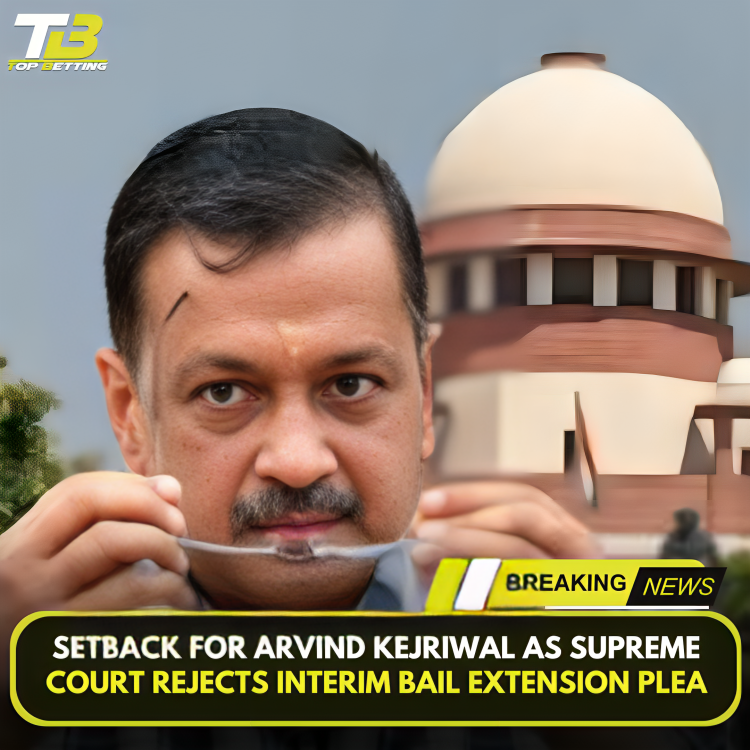
Kejriwal as Supreme Court rejects interim bail
In a significant legal setback for Delhi Chief Minister Arvind Kejriwal, the Supreme Court registry has refused to grant an urgent listing of his plea seeking a 7-day extension of his interim bail. Kejriwal was seeking the extension on health grounds, as he was set to surrender before the court on June 2. However, the apex court registry maintained that since Kejriwal had been given the liberty to move the trial court for regular bail, his interim bail plea was not maintainable.
The Laundering Case Against Kejriwal
The current development is a part of an ongoing legal battle involving Kejriwal, who is facing a money laundering case. The case, which has been making headlines, centers around allegations of financial irregularities and misappropriation of funds during Kejriwal’s tenure as the Chief Minister of Delhi.
Supreme Court’s Refusal to Grant Urgent Listing
According to reports, the Supreme Court registry refused to accept Kejriwal’s application for the urgent listing of his interim bail extension plea. The registry cited the fact that the chief minister had already been granted the liberty to approach the trial court for regular bail, rendering his interim bail plea as not maintainable.
Kejriwal’s Plea for Medical Tests
Kejriwal’s legal team, led by senior advocate Abhishek Singhvi, had approached the Supreme Court seeking a 7-day extension of his interim bail. The plea was based on Kejriwal’s need to undergo certain medical tests during this period. However, the apex court registry’s decision has now dashed these hopes, setting the stage for Kejriwal’s surrender before the court on the scheduled date of June 2.
Implications of the Setback
The Supreme Court’s rejection of Kejriwal’s interim bail extension plea is a significant setback for the Delhi Chief Minister, who was seeking to buy more time to address his medical concerns. This development has raised concerns about the potential impact on Kejriwal’s ability to effectively carry out his duties as the head of the Delhi government, given the ongoing legal proceedings.
Kejriwal’s Legal Options Moving Forward
With the Supreme Court refusing to grant an urgent listing of his interim bail extension plea, Kejriwal’s legal team now faces the challenge of exploring alternative legal avenues. The option to approach the trial court for regular bail, as suggested by the apex court registry, will likely be the next step for Kejriwal’s legal team as they seek to secure his release on bail.
Reactions and Responses
The Supreme Court’s decision has sparked a range of reactions from various stakeholders. Kejriwal’s political opponents have seized the opportunity to criticize his actions, while his supporters have expressed concerns over the potential impact on the governance of the national capital. The legal community has also weighed in, analyzing the implications of the court’s ruling and the potential challenges facing Kejriwal’s legal team.
Ongoing Investigations and Legal Proceedings
The money laundering case against Kejriwal is part of a broader investigation being conducted by the Enforcement Directorate (ED). The agency has been probing allegations of financial irregularities and misappropriation of funds during Kejriwal’s tenure as the Chief Minister of Delhi. The case has been closely followed by the media and the public, with both sides presenting their respective arguments and evidence.
Kejriwal’s Political Career and Reputation
The setback in the Supreme Court has the potential to impact Kejriwal’s political career and reputation. As the leader of the Aam Aadmi Party (AAP) and the Chief Minister of Delhi, Kejriwal has been a prominent figure in Indian politics, known for his anti-corruption crusade and his efforts to transform the governance of the national capital. This latest development, however, may raise questions about his handling of the legal proceedings and his ability to effectively lead the Delhi government.
Public Perception and Scrutiny
The ongoing legal battle involving Kejriwal has been closely followed by the media and the public, with both sides presenting their respective narratives. The Supreme Court’s rejection of his interim bail extension plea is likely to intensify the public scrutiny and discourse surrounding the case, with both supporters and critics weighing in on the implications of this development.
Potential Impact on Governance in Delhi
The legal proceedings against Kejriwal have the potential to disrupt the governance of the national capital, particularly if the chief minister is required to spend an extended period of time addressing the legal challenges. This raises concerns about the continuity of important policy initiatives and the ability of the Delhi government to effectively address the pressing issues facing the city.

Conclusion
The Supreme Court’s rejection of Arvind Kejriwal’s plea for a 7-day extension of his interim bail is a significant setback for the Delhi Chief Minister. As he prepares to surrender before the court on June 2, Kejriwal and his legal team face the challenge of exploring alternative legal avenues to secure his release on bail. The ongoing legal proceedings and their potential impact on Kejriwal’s political career and the governance of Delhi will continue to be closely watched by the media, the public, and various stakeholders.











